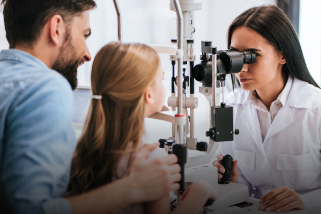Pre-Pharmacy Certificate
Prepare a competitive Pharmacy School application
The Pre-Pharmacy Certificate is designed to prepare any student in any discipline, either seeking or having completed a bachelor’s degree, for competitively applying to pharmacy programs. This certificate requires significant preparation in the natural sciences and a strong GPA to complete. Students are required to seek out patient experiences to complete the certificate. The 300 hours (minimum) of required experience places students in a strong position to stand out among their peers.
Format
In-Person
Credit Hours
15 Credit Hours
Additional Requirements
Science GPA: 3.00
Courses: BIOL 362 x6
Complete the requirements for the Pre-Physical Therapy/Occupational Therapy Certificate
in addition to the Pre-Pharmacy Certificate
About the Program
The Pre-Pharmacy Certificate guides students toward meeting important academic and non-academic prerequisites for achieving acceptance into most pharmacy programs. The requirements are specifically selected because they are either required or suggested to obtain admission into these programs. Completion of the certificate requirements will increase the chances of students completing a competitive application.
The BIOL 362 requirement for Pre-Pharmacy Certificate is a unique aspect of the Pre-Health Certificate program at SXU. BIOL 362 requires students to obtain documented experience with patients (e.g., shadowing, scribing, pharmacy assistant, etc.) for 50 hours per semester for a total of 300 experience hours over two years, which are necessary for a competitive application.
- Students will obtain knowledge in relevant disciplines necessary to perform well on the PCAT and for consideration into pharmacy programs.
- Students will obtain knowledge and experiences for consideration into pharmacy programs.
- Students will have competitive GPAs for consideration into pharmacy programs.
The Pre-Pharmacy Certificate at Saint Xavier provides a unique opportunity for students to have a guided experience that ensures they submit competitive applications to their desired programs.
Saint Xavier University has small courses taught by accessible and knowledgeable faculty with experience with various health programs.
Saint Xavier University’s small class sizes provide personalized experiences and relationships with faculty, who can provide thoughtful and well-informed letters of recommendation to pharmacy programs.
Students completing the Pre-Pharmacy Certificate should be well-positioned to complete or nearly complete a biology and/or chemistry minor if they are not already pursuing a biology or chemistry major. Students completing the Pre-Pharmacy Certificate would similarly have made significant progress toward a Biology major.
Required Courses:
CHEM 252: Organic Chemistry II (4)
CHEM 301: Biochemistry (4)
MATH 201: Calculus (4)
ECON 202: Principle of Economics
Quick Links
Request Information
Want to know more about graduate programs at Saint Xavier University? Please fill out the form below!
Contact the Office of Admission
- 773-298-3050
- Toll Free: 844-GOTO-SXU (844-468-6798)
- Fax: 773-298-3076
- Email: admissionFREESXU
- M-F: 8:30 a.m. to 4:30 p.m.
Other Pre-Health and Research Certificates
Earn a Certificate of Graduate Program Preparation
Application Process
Students can apply to over 100 pharmacy schools by completing their initial application through the web-based Pharmacy College Application Service (PharmCAS). Programs not participating in PharmCAS accept applications directly to their schools. Schools using PharmCAS may or may not require a supplemental application; check with each program.
Pharmacy applicants must have achieved a cumulative 2.5 GPA to apply. They must have a minimum of 12 general education credits to apply, although completion of 20 general education credits is recommended prior to the first pharmacy year. Each applicant must complete the PharmCAS application, which includes letters of reference and transcripts.
Many pharmacy schools seek a diverse class of students. Programs seek to recruit individuals from diverse ethnicities, socioeconomic backgrounds, and life experiences to the pharmacy profession and to equip them with the necessary clinical and professional knowledge, skills and abilities to provide high quality, compassionate medical care to diverse patient populations. Students may contact individual pharmacy schools for more information.
The Pharmacy College Admission Test (PCAT) is required for applicants to most Colleges of Pharmacy. Scores must be sent to PharmCAS, but you must determine each school's individual code number. The PCAT must be taken no later than September prior to the application deadline. Pre-registration for the exam is required; dates are listed on the PCAT web site. Students should register for the test online. The registration fee is $199.
Two letters of reference are required. Letters are processed through the PharmCAS application service and may be submitted electronically. These letters can be from an employer, professor, supervisor of a community service project, etc. They may not come from a family member or friend. They should be received by the application deadline.
Interviews vary by school; students should check with their individual schools for interview timelines. The UI College of Pharmacy requires personal, on-campus interviews. Applicants selected for an interview will be contacted via email. Interviews are held in February.
The PharmCAS application asks, "Were you ever the recipient of any action by any faculty member, college or university for academic or professional misconduct or unacceptable academic performance?" and "Have you ever been convicted of a felony?" Students answering "yes" will need to provide an explanation. The UI College of Pharmacy performs criminal background checks on newly enrolled students. Other schools may participate in a centralized criminal background check program as well.
Pharmacy schools differ as to whether they accept U.S. permanent residents and/or foreign citizens. Applicants are encouraged to check PharmCAS (under "School Information") for each school's admission policy.
Director of Natural Sciences Division












